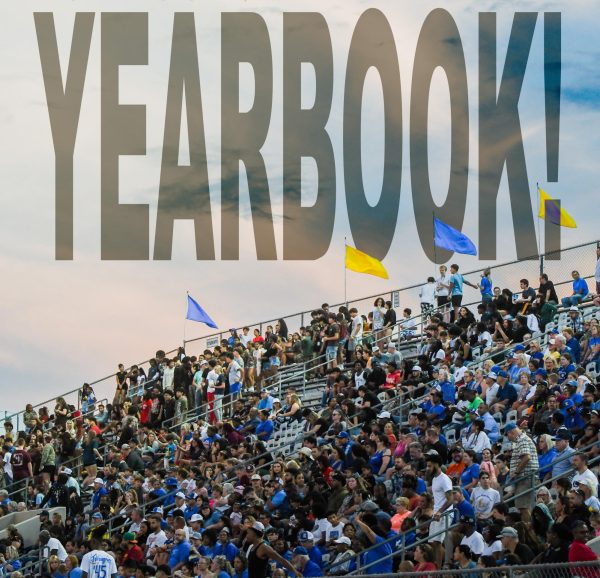Students address social issues through extra-credit documentaries
Surviving through the six weeks while maintaining a good class average may sound like a daunting task at first. However, with any class comes some kind of extra credit assignment to assist students, and AP English III teacher Amy Breeding decided to approach it by means of media.
“In the Language and Composition class, one of the components of the AP test is analysis of rhetoric. To try and take a different perspective on that, I like to throw in an analysis of a film because through visual techniques, angle, inclusion of different graphics, and through sound techniques, it’s kind of the same as the use of certain words to create tone,” said Breeding.
Though students from previous years have seen documentaries, they never had the opportunity to create their own documentary for English.
“After viewing a documentary, I offered for the students to create their own documentary to see how to effectively be on word and how they can also create a fact and purpose through their own artistic abilities. This is the first time I’ve offered this as a bonus,” said Breeding. “Part of it is the thought that you all have something to say about the world, and sometimes, saying it through media is more effective than through writing.”
First assigned before the beginning of March, students who were interested in participating in the project created groups of up to four members. They then had to plan accordingly by choosing an approved topic and creating a draft of rhetorical appeals and interviews to include. The documentary topics revolved around issues concerning today’s society such as competition and the accepted perspective of beauty.
“We covered the medical advances in/for special needs kids, and we also expanded on the topic in research and how medical advances have helped special needs kids,” said junior Ana Lima. “In this video documentary, we tried to explain to the people that with these advances in medical science and everything, we can present them as who they are. We wanted to show people that special needs children are not different just because they have a medical disability. They are just like you and I.”
As the students produced the documentaries, they had to meet set deadlines and turn all of the drafts in on time. Students also had to film the documentary before the final deadline; this involved working outside of school, whether on weekends, after the school day, or during Spring Break.
“My group worked on weekends typically at my house. HOSA state was during one weekend, so we weren’t able to work for four days,” said junior Amani Ramiz. “Otherwise, it was easier to manage. The main time-consuming factor was editing. There was a malfunction with audio, so my group mate’s brother had to edit the video all over again.”
Despite the challenges, the groups who finished the documentaries relied on not only skill and the opportunity to earn three bonus points, but also motivation.
“We definitely had a hard time staying determined, but I think that with everyone, they helped each other,” said Lima. “Even though it was hard to get meetings because everyone had different schedules and conflicts, I think that because we met up as a group and because we had the determination and will to do it, we did it. We wanted to explore this topic. Of course, we wanted the bonus points, but I think we did it because it was a fun project.”
The final product was due on the week of April 14, with the classes viewing the documentaries that same week.
“My group covered technology vs. education,” said Ramiz. “It was a topic everyone could relate to in the class, especially with the tablets incorporated into our school. The consensus was that it was good; my class thought that it was funny and said they liked it.”
Whether or not students next year have the opportunity to create a documentary relies on both the overall reception and amount of time in the semesters.
“We’re really limited on time in the classroom in covering our curriculum, but if students are interested in any kind of enrichment like this, I’d love to offer it,” said Breeding. “I wouldn’t do it as a required assignment strictly because of the time commitment; we don’t really have that much time in class to devote to that. But if the students who participated in it enjoyed and learned something from it, certainly I would do it again.”
Your donation will support the student journalists of Klein High School. Your contribution will allow us to purchase equipment and cover our annual website hosting costs.







dave smith • May 21, 2014 at 1:57 pm
Great idea from Ms. Breeding. I find the choice of word for the title to be somewhat Freudian (Technology VERSUS Education) in refernce to the Tablets. Aren’t these supposed to be complimentary not confontational? 😉